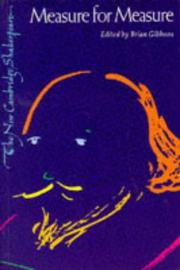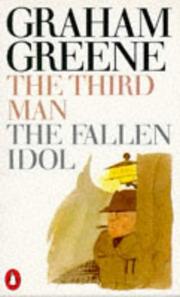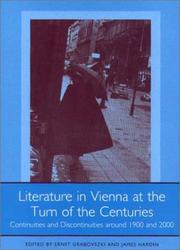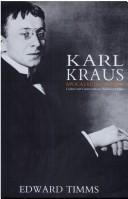| Listing 1 - 10 of 42 | << page >> |
Sort by
|

ISBN: 0521222273 0521294010 Year: 1991 Publisher: Cambridge Cambridge University press
Abstract | Keywords | Export | Availability | Bookmark
 Loading...
Loading...Choose an application
- Reference Manager
- EndNote
- RefWorks (Direct export to RefWorks)
Brothers and sisters --- Chastity --- Drama. --- Drama --- Vienna (Austria) --- Wien (Austria) --- Vi︠e︡denʹ (Austria) --- Vedenʹ (Austria) --- Vena (Austria) --- Wiedëń (Austria) --- Bécs (Austria) --- Vindobona (Austria) --- Videnʹ (Austria) --- Vienne (Austria) --- Viena (Austria) --- Wienn (Austria) --- Dunaj (Austria) --- Wean (Austria) --- Wenen (Austria) --- Wina (Austria) --- Wene (Austria) --- Uigenna (Austria) --- فيينا (Austria) --- Fīyinnā (Austria) --- Vyana (Austria) --- Вена (Austria) --- Горад Вена (Austria) --- Виена (Austria) --- Beč (Austria) --- Fienna (Austria) --- Viin (Austria) --- Βιέννη (Austria) --- Вена ош (Austria) --- Vena osh (Austria) --- Vieno (Austria) --- Viene (Austria) --- Vín (Austria) --- Veen (Austria) --- 빈 (Austria) --- Венæ (Austria) --- Venæ (Austria) --- וינה (Austria) --- Ṿinah (Austria) --- Vienna (Reichsgau) --- Families --- Sibling relations --- Sisters and brothers

ISBN: 0140032789 9780140032789 Year: 1971 Publisher: Harmondsworth : Penguin,
Abstract | Keywords | Export | Availability | Bookmark
 Loading...
Loading...Choose an application
- Reference Manager
- EndNote
- RefWorks (Direct export to RefWorks)
English literature --- #BIBC:bibl.Brugmans --- British --- Criminals --- Diplomats --- Master and servant --- British people --- Britishers --- Britons (British) --- Brits --- Ethnology --- Fiction --- Vienna (Austria) --- Wien (Austria) --- Vi︠e︡denʹ (Austria) --- Vedenʹ (Austria) --- Vena (Austria) --- Wiedëń (Austria) --- Bécs (Austria) --- Vindobona (Austria) --- Videnʹ (Austria) --- Vienne (Austria) --- Viena (Austria) --- Wienn (Austria) --- Dunaj (Austria) --- Wean (Austria) --- Wenen (Austria) --- Wina (Austria) --- Wene (Austria) --- Uigenna (Austria) --- فيينا (Austria) --- Fīyinnā (Austria) --- Vyana (Austria) --- Вена (Austria) --- Горад Вена (Austria) --- Виена (Austria) --- Beč (Austria) --- Fienna (Austria) --- Viin (Austria) --- Βιέννη (Austria) --- Вена ош (Austria) --- Vena osh (Austria) --- Vieno (Austria) --- Viene (Austria) --- Vín (Austria) --- Veen (Austria) --- 빈 (Austria) --- Венæ (Austria) --- Venæ (Austria) --- וינה (Austria) --- Ṿinah (Austria) --- Vienna (Reichsgau) --- Fiction.
Book
ISBN: 0801455227 9780801452871 0801452872 9780801455223 9780801455216 0801455219 Year: 2014 Publisher: Ithaca
Abstract | Keywords | Export | Availability | Bookmark
 Loading...
Loading...Choose an application
- Reference Manager
- EndNote
- RefWorks (Direct export to RefWorks)
Interwar Vienna was considered a bastion of radical socialist thought, and its reputation as "Red Vienna" has loomed large in both the popular imagination and the historiography of Central Europe. However, as Janek Wasserman shows in this book, a "Black Vienna" existed as well; its members voiced critiques of the postwar democratic order, Jewish inclusion, and Enlightenment values, providing a theoretical foundation for Austrian and Central European fascist movements. Looking at the complex interplay between intellectuals, the public, and the state, he argues that seemingly apolitical Viennese intellectuals, especially conservative ones, dramatically affected the course of Austrian history. While Red Viennese intellectuals mounted an impressive challenge in cultural and intellectual forums throughout the city, radical conservatism carried the day. Black Viennese intellectuals hastened the destruction of the First Republic, facilitating the establishment of the Austrofascist state and paving the way for Anschluss with Nazi Germany. Closely observing the works and actions of Viennese reformers, journalists, philosophers, and scientists, Wasserman traces intellectual, social, and political developments in the Austrian First Republic while highlighting intellectuals' participation in the growing worldwide conflict between socialism, conservatism, and fascism. Vienna was a microcosm of larger developments in Europe-the rise of the radical right and the struggle between competing ideological visions. By focusing on the evolution of Austrian conservatism, Wasserman complicates post-World War II narratives about Austrian anti-fascism and Austrian victimhood.
Political culture --- Right-wing extremists --- Far-right extremists --- Radicals --- Culture --- Political science --- History --- Austria --- Vienna (Austria) --- Wien (Austria) --- Vi︠e︡denʹ (Austria) --- Vedenʹ (Austria) --- Vena (Austria) --- Wiedëń (Austria) --- Bécs (Austria) --- Vindobona (Austria) --- Videnʹ (Austria) --- Vienne (Austria) --- Viena (Austria) --- Wienn (Austria) --- Dunaj (Austria) --- Wean (Austria) --- Wenen (Austria) --- Wina (Austria) --- Wene (Austria) --- Uigenna (Austria) --- فيينا (Austria) --- Fīyinnā (Austria) --- Vyana (Austria) --- Вена (Austria) --- Горад Вена (Austria) --- Виена (Austria) --- Beč (Austria) --- Fienna (Austria) --- Viin (Austria) --- Βιέννη (Austria) --- Вена ош (Austria) --- Vena osh (Austria) --- Vieno (Austria) --- Viene (Austria) --- Vín (Austria) --- Veen (Austria) --- 빈 (Austria) --- Венæ (Austria) --- Venæ (Austria) --- וינה (Austria) --- Ṿinah (Austria) --- Vienna (Reichsgau) --- Politics and government --- Intellectual life
Book
ISBN: 0191648566 9780191648564 9780199669790 0199669791 1322154058 0191648574 Year: 2014 Publisher: Oxford, [England] : Oxford University Press,
Abstract | Keywords | Export | Availability | Bookmark
 Loading...
Loading...Choose an application
- Reference Manager
- EndNote
- RefWorks (Direct export to RefWorks)
Seventeen stories from one of Europe's most enchanting cities.
Short stories, German --- Vienna (Austria) --- Wien (Austria) --- Vi︠e︡denʹ (Austria) --- Vedenʹ (Austria) --- Vena (Austria) --- Wiedëń (Austria) --- Bécs (Austria) --- Vindobona (Austria) --- Videnʹ (Austria) --- Vienne (Austria) --- Viena (Austria) --- Wienn (Austria) --- Dunaj (Austria) --- Wean (Austria) --- Wenen (Austria) --- Wina (Austria) --- Wene (Austria) --- Uigenna (Austria) --- فيينا (Austria) --- Fīyinnā (Austria) --- Vyana (Austria) --- Вена (Austria) --- Горад Вена (Austria) --- Виена (Austria) --- Beč (Austria) --- Fienna (Austria) --- Viin (Austria) --- Βιέννη (Austria) --- Вена ош (Austria) --- Vena osh (Austria) --- Vieno (Austria) --- Viene (Austria) --- Vín (Austria) --- Veen (Austria) --- 빈 (Austria) --- Венæ (Austria) --- Venæ (Austria) --- וינה (Austria) --- Ṿinah (Austria) --- Vienna (Reichsgau)
Book
ISBN: 1787446107 1640140670 Year: 2020 Publisher: Rochester, NY : Camden House,
Abstract | Keywords | Export | Availability | Bookmark
 Loading...
Loading...Choose an application
- Reference Manager
- EndNote
- RefWorks (Direct export to RefWorks)
An encyclopedic selection of original documents from the Austrian capital's pathbreaking, progressive interwar period, translated and with contextualizing introductions and commentaries.
Popular culture --- Culture, Popular --- Mass culture --- Pop culture --- Popular arts --- Communication --- Intellectual life --- Mass society --- Recreation --- Culture --- History --- Vienna (Austria) --- Wien (Austria) --- Vi︠e︡denʹ (Austria) --- Vedenʹ (Austria) --- Vena (Austria) --- Wiedëń (Austria) --- Bécs (Austria) --- Vindobona (Austria) --- Videnʹ (Austria) --- Vienne (Austria) --- Viena (Austria) --- Wienn (Austria) --- Dunaj (Austria) --- Wean (Austria) --- Wenen (Austria) --- Wina (Austria) --- Wene (Austria) --- Uigenna (Austria) --- فيينا (Austria) --- Fīyinnā (Austria) --- Vyana (Austria) --- Вена (Austria) --- Горад Вена (Austria) --- Виена (Austria) --- Beč (Austria) --- Fienna (Austria) --- Viin (Austria) --- Βιέννη (Austria) --- Вена ош (Austria) --- Vena osh (Austria) --- Vieno (Austria) --- Viene (Austria) --- Vín (Austria) --- Veen (Austria) --- 빈 (Austria) --- Венæ (Austria) --- Venæ (Austria) --- וינה (Austria) --- Ṿinah (Austria) --- Vienna (Reichsgau) --- Social policy
Book
ISBN: 1785331329 1785331337 Year: 2016 Publisher: New York ; London, [England] : Berghahn,
Abstract | Keywords | Export | Availability | Bookmark
 Loading...
Loading...Choose an application
- Reference Manager
- EndNote
- RefWorks (Direct export to RefWorks)
The Austrian Empire was not a colonial power in the sense that fellow actors like 19th-century England and France were. It nevertheless oversaw a multinational federation where the capital of Vienna was unmistakably linked with its eastern periphery in a quasi-colonial arrangement that inevitably shaped the cultural and intellectual life of the Habsburg Empire. This was particularly evident in the era’s colonial utopian writing, and Tropics of Vienna blends literary criticism, cultural theory, and historical analysis to illuminate this curious genre. By analyzing the works of Leopold von Sacher-Masoch, Theodor Herzl, Joseph Roth, and other representative Austrian writers, it reveals a shared longing for alternative social and spatial configurations beyond the concept of the “nation-state” prevalent at the time.
Austrian literature --- Utopias in literature. --- Colonies in literature. --- History and criticism. --- Utopian literature --- German literature --- Austrian authors --- Vienna (Austria) --- Intellectual life --- Wien (Austria) --- Vi︠e︡denʹ (Austria) --- Vedenʹ (Austria) --- Vena (Austria) --- Wiedëń (Austria) --- Bécs (Austria) --- Vindobona (Austria) --- Videnʹ (Austria) --- Vienne (Austria) --- Viena (Austria) --- Wienn (Austria) --- Dunaj (Austria) --- Wean (Austria) --- Wenen (Austria) --- Wina (Austria) --- Wene (Austria) --- Uigenna (Austria) --- فيينا (Austria) --- Fīyinnā (Austria) --- Vyana (Austria) --- Вена (Austria) --- Горад Вена (Austria) --- Виена (Austria) --- Beč (Austria) --- Fienna (Austria) --- Viin (Austria) --- Βιέννη (Austria) --- Вена ош (Austria) --- Vena osh (Austria) --- Vieno (Austria) --- Viene (Austria) --- Vín (Austria) --- Veen (Austria) --- 빈 (Austria) --- Венæ (Austria) --- Venæ (Austria) --- וינה (Austria) --- Ṿinah (Austria) --- Vienna (Reichsgau)

ISBN: 1571132333 9786611862879 1281862878 157113607X Year: 2003 Publisher: Rochester, NY : Camden House,
Abstract | Keywords | Export | Availability | Bookmark
 Loading...
Loading...Choose an application
- Reference Manager
- EndNote
- RefWorks (Direct export to RefWorks)
This book of new essays by widely-published scholars from the United States, Great Britain, Germany, and Austria examines the artistic, social, political, and historical continuities and discontinuities in Viennese literature during the periods around 1900 and 2000. It takes its impetus from the idea that both turns of the century are turning points in the development of Austrian literature and history. The essays show that in both periods literature not only reflects societal conditions and political issues, but also serves to criticize them. Ernst Grabovszki's introduction sets the context of literature in Vienna in 1900 and 2000, and is followed by essays exploring the following topics bearing on the city's literature across the two periods: writing about Vienna (Janet Stewart); art and architecture (Douglas Crow); psychoanalysis and the literature of Vienna (Thomas Paul Bonfiglio); poetry in Vienna from Hofmannsthal to Jandl (Rüdiger Görner); Austrian cinema culture (Willy Riemer); Austrian-Jewish culture (Hillary Hope Herzog and Todd Herzog); Austrian women's writing (Dagmar C. G. Lorenz); Karl Kraus and Robert Menasse as critical observers of their times (Geoffrey C. Howes); and Venice as mediator between the Viennese metropolis and the provinces (John Pizer). The figures treated range from Arthur Schnitzler, Hugo von Hofmannsthal, Sigmund Freud, Theodor Herzl, Karl Kraus, Peter Altenberg, Franz Grillparzer, Joseph Roth, Bertha von Suttner, and Marie von Ebner-Eschenbach in the earlier fin de siècle to Elfriede Jelinek, Robert Schindel, Robert Menasse, Josef Haslinger, Ernst Jandl, Friedensreich Hundertwasser, and Marlene Streeruwitz in the current period. Ernst Grabovszki teaches at the University of Vienna. James Hardin is professor emeritus of German at the University of South Carolina.
Austrian literature --- 19th century --- History and criticism --- 20th century --- Vienna (Austria) --- Intellectual life --- Civilization --- History and criticism. --- Intellectual life. --- Civilization. --- Wien (Austria) --- Vi︠e︡denʹ (Austria) --- Vedenʹ (Austria) --- Vena (Austria) --- Wiedëń (Austria) --- Bécs (Austria) --- Vindobona (Austria) --- Videnʹ (Austria) --- Vienne (Austria) --- Viena (Austria) --- Wienn (Austria) --- Dunaj (Austria) --- Wean (Austria) --- Wenen (Austria) --- Wina (Austria) --- Wene (Austria) --- Uigenna (Austria) --- فيينا (Austria) --- Fīyinnā (Austria) --- Vyana (Austria) --- Вена (Austria) --- Горад Вена (Austria) --- Виена (Austria) --- Beč (Austria) --- Fienna (Austria) --- Viin (Austria) --- Βιέννη (Austria) --- Вена ош (Austria) --- Vena osh (Austria) --- Vieno (Austria) --- Viene (Austria) --- Vín (Austria) --- Veen (Austria) --- 빈 (Austria) --- Венæ (Austria) --- Venæ (Austria) --- וינה (Austria) --- Ṿinah (Austria) --- Vienna (Reichsgau)
Book
ISBN: 0870993992 Year: 1985 Publisher: Metropolitan museum of art
Abstract | Keywords | Export | Availability | Bookmark
 Loading...
Loading...Choose an application
- Reference Manager
- EndNote
- RefWorks (Direct export to RefWorks)
Private houses --- Liechtenstein [Dynastie] --- anno 1700-1799 --- anno 1600-1699 --- Vienna --- Architecture, Baroque --- Architecture, Italian --- Palaces --- Buildings --- Italian architecture --- Baroque architecture --- Liechtenstein, House of --- Homes --- Vienna (Austria) --- Wien (Austria) --- Vi︠e︡denʹ (Austria) --- Vedenʹ (Austria) --- Vena (Austria) --- Wiedëń (Austria) --- Bécs (Austria) --- Vindobona (Austria) --- Videnʹ (Austria) --- Vienne (Austria) --- Viena (Austria) --- Wienn (Austria) --- Dunaj (Austria) --- Wean (Austria) --- Wenen (Austria) --- Wina (Austria) --- Wene (Austria) --- Uigenna (Austria) --- فيينا (Austria) --- Fīyinnā (Austria) --- Vyana (Austria) --- Вена (Austria) --- Горад Вена (Austria) --- Виена (Austria) --- Beč (Austria) --- Fienna (Austria) --- Viin (Austria) --- Βιέννη (Austria) --- Вена ош (Austria) --- Vena osh (Austria) --- Vieno (Austria) --- Viene (Austria) --- Vín (Austria) --- Veen (Austria) --- 빈 (Austria) --- Венæ (Austria) --- Venæ (Austria) --- וינה (Austria) --- Ṿinah (Austria) --- Vienna (Reichsgau) --- Buildings, structures, etc.
Book
ISBN: 9780300174533 0300174535 Year: 2011 Publisher: New Haven Yale university
Abstract | Keywords | Export | Availability | Bookmark
 Loading...
Loading...Choose an application
- Reference Manager
- EndNote
- RefWorks (Direct export to RefWorks)
architectuur --- architecture [discipline] --- Loos, Adolf --- Modern movement (Architecture) --- Loos, Adolf, --- Criticism and interpretation. --- Looshaus (Vienna, Austria) --- Vienna (Austria) --- Buildings, structures, etc. --- Michaelerplatz --- Wien --- Das Looshaus --- Looshaus (Vienna, Austria). --- Modernism (Architecture) --- Modernist architecture --- Architecture, Modern --- International style (Architecture) --- לוס, אדולף, --- Wien (Austria) --- Vi︠e︡denʹ (Austria) --- Vedenʹ (Austria) --- Vena (Austria) --- Wiedëń (Austria) --- Bécs (Austria) --- Vindobona (Austria) --- Videnʹ (Austria) --- Vienne (Austria) --- Viena (Austria) --- Wienn (Austria) --- Dunaj (Austria) --- Wean (Austria) --- Wenen (Austria) --- Wina (Austria) --- Wene (Austria) --- Uigenna (Austria) --- فيينا (Austria) --- Fīyinnā (Austria) --- Vyana (Austria) --- Вена (Austria) --- Горад Вена (Austria) --- Виена (Austria) --- Beč (Austria) --- Fienna (Austria) --- Viin (Austria) --- Βιέννη (Austria) --- Вена ош (Austria) --- Vena osh (Austria) --- Vieno (Austria) --- Viene (Austria) --- Vín (Austria) --- Veen (Austria) --- 빈 (Austria) --- Венæ (Austria) --- Venæ (Austria) --- וינה (Austria) --- Ṿinah (Austria) --- Vienna (Reichsgau) --- 72.07 --- 72.037(436) --- Architectuur ; Wenen ; Looshaus ; A. Loos --- Goldman & Salatsch Building --- Loos, Adolf 1870-1933 (°Brno, Tsjechië) --- Architecten. Stedenbouwkundigen --- Architectuurgeschiedenis ; 1900 - 1950 ; Oostenrijk

ISBN: 0300036116 9780300036114 0300044836 9780300044836 Year: 1986 Publisher: New Haven London Yale University Press
Abstract | Keywords | Export | Availability | Bookmark
 Loading...
Loading...Choose an application
- Reference Manager
- EndNote
- RefWorks (Direct export to RefWorks)
Kraus's satires expressed his own identity crisis and that of Austria, in which antisemitism, sexual hysteria, and xenophobia were important forces. Pp. 237-243 deal with Kraus's Jewish identity and attitude to antisemitism. He renounced Judaism in 1899 and became a Catholic in 1911, but kept his conversion a secret fearing that he would be accused of opportunism. Kraus adopted Houston Stewart Chamberlain's ideas and printed articles by Chamberlain in his magazine "Die Fackel." During the First World War, he attacked Jewish profiteers and journalists as traitors to Austria. However, in 1918 he became a democrat, and he left the Church in 1923.
Kraus, Karl --- Criticism and interpretation --- Contemporary Austria --- Critique et interprétation --- Autriche contemporaine --- Vienna (Austria) --- Vienne (Autriche) --- Intellectual life --- Vie intellectuelle --- Critique et interprétation --- Wenen. Intellectueel leven. 1890-1936. --- Kraus (Karl). --- Vienne. Vie intellectuelle. 1890-1936. --- Kraus, Karl, --- Criticism and interpretation. --- Wien (Austria) --- Vi︠e︡denʹ (Austria) --- Vedenʹ (Austria) --- Vena (Austria) --- Wiedëń (Austria) --- Bécs (Austria) --- Vindobona (Austria) --- Videnʹ (Austria) --- Vienne (Austria) --- Viena (Austria) --- Wienn (Austria) --- Dunaj (Austria) --- Wean (Austria) --- Wenen (Austria) --- Wina (Austria) --- Wene (Austria) --- Uigenna (Austria) --- فيينا (Austria) --- Fīyinnā (Austria) --- Vyana (Austria) --- Вена (Austria) --- Горад Вена (Austria) --- Виена (Austria) --- Beč (Austria) --- Fienna (Austria) --- Viin (Austria) --- Βιέννη (Austria) --- Вена ош (Austria) --- Vena osh (Austria) --- Vieno (Austria) --- Viene (Austria) --- Vín (Austria) --- Veen (Austria) --- 빈 (Austria) --- Венæ (Austria) --- Venæ (Austria) --- וינה (Austria) --- Ṿinah (Austria) --- Vienna (Reichsgau) --- Intellectual life.
| Listing 1 - 10 of 42 | << page >> |
Sort by
|

 Search
Search Feedback
Feedback About UniCat
About UniCat  Help
Help News
News